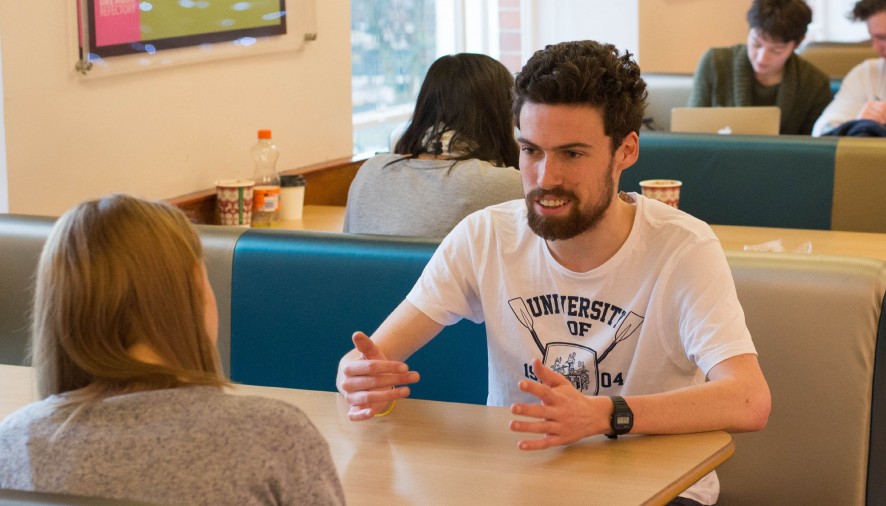In the week that The University of Leeds is named as the Times’ Entrepreneurial University of the Year, The Gryphon speaks to Tim Brazier, founder of My Student Venture.
Could you start off by telling me what My Student Venture is all about?
My Student Venture is an online platform and we help students get work and experience in start ups and smaller businesses. If you go to a career’s fair you’re going to see all the big companies over and over again, so we spend all our time finding all the other companies that aren’t there.
It actually started from another business plan I had, which was light-up skis. But I wasn’t too good at the technical drawings, so I wanted to find a product design student and I was running around asking different people on campus and they couldn’t help me, so I ended up back to square one. Then I thought, if I’m inside the student bubble, and I can’t find a student with the skills that I need, how hard must it be for other businesses that are starting up?
How successful has it been to date?
It’s kind of like that chicken and the egg thing; you’ve got to get businesses on board but you’ve also got to get students on board. I’ve had loads of support from the university, and I’ve got some quite good publicity as I’ve gone on; quite recently I was featured in the Sunday Times as part of Global Entrepreneurship Week. I’ve also been accepted on to Entrepreneurial Spark, which is Europe’s largest and most active accelerator, a programme where they take a load of start ups and put them in one building where you all receive mentoring and coaching and events. It basically takes your business, whether it’s at the idea stage or whether you’ve been running for years, and helps it move forward and grow.
What kinds of businesses do you work with?
We have such a range; some are still at the idea stage and they just want someone to join them so they can help get it off the ground. Lots of people are wanting websites designed, so that’s a great way for computing students to boost their portfolio. Then we’ve got businesses who are a bit more set up and are looking for marketing, like social media, content writing and blogging, so that’s really good for any students from humanities or journalism courses. Then we have bigger organisations that have been running for a few years, who are maybe looking an intern. We’ve got over 90 business signed up, and over 300 students.
What were the main challenges you faced when setting up a business?
Trying to get the word out there is the hardest thing because there’s only me, and a few others, and we only be in so many places at once. At Leeds university especially, there’s so many opportunities, and we’re trying to get heard amongst that. Growing the network has been a challenge, but it’s starting to pick up now and as you get more success stories it makes it easier for people to understand what we do.
How do you hope to develop My Student Venture in the future?
It’s now open for students from across the UK, not just Leeds, although due to where I am, a lot of the opportunities are in Leeds. We just want to keep growing. As work is changing, more and more graduates are doing project work and freelance work, rather than having a career in a big business, and this helps give them their first experiences in doing some project or freelance work.
What support did you receive from the university when starting the business?
I went to Spark, the university’s start up services, based at the careers centre. If you have any idea, no matter how wacky it is, you can turn up and they’ll sit down and have a meeting with you, talk it over and they advise you on what to do next. They have different competitions and options, including an Enterprise Scholarship which I was lucky enough to win. They also have an incubator space, a shared office space used by 30 student start ups in the Leeds Innovation Centre, which sounds really good as a trading address and gives you credibility. Spark also have access to specialists, so you can call them up and they’ll put you in contact with a specialist accountant, or a lawyer, for an one hour consultation. They’ve also helped promote the business, and provided opportunities for press events and networking.
What would you say to those who are thinking of setting up a business, but are afraid of taking the first steps?
Go for it. Don’t be worried. You could be on to something, you never know unless you speak to someone about it. In terms of starting a business at university, it’s the best time to start. The three challenges you face when you start a business are time, skills and money. As a student you probably don’t have a huge amount of contact hours, and actually have so much more time that people in fulltime jobs don’t have. Students have loads of skills, and you’re surrounded by so many people and resources who can help you learn new skills in a different department. You have so much less risk and commitment as a student; here, if you run it for a year and it fails, the only thing you lose is one year’s salary, but in the process you’ll have made yourself incredibly employable. Starting a business you learn so much by doing so many different things; you’re the financial planner, you’re the marketing director, you’re the bin man. You might decide you enjoy the marketing side and you can use that experience to get a job in that area. What have you got to lose?
(Image: Jack Roberts)
Jessica Murray

